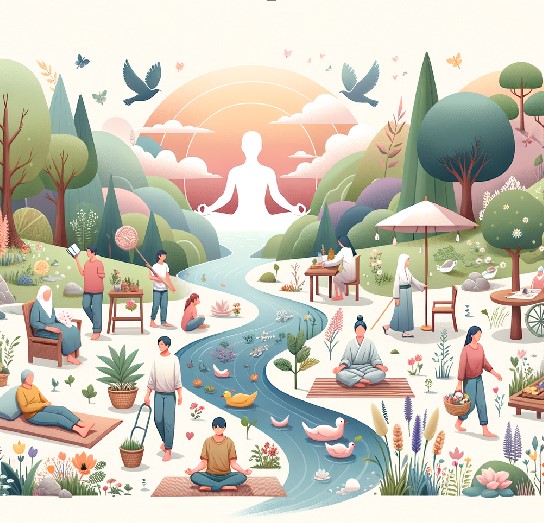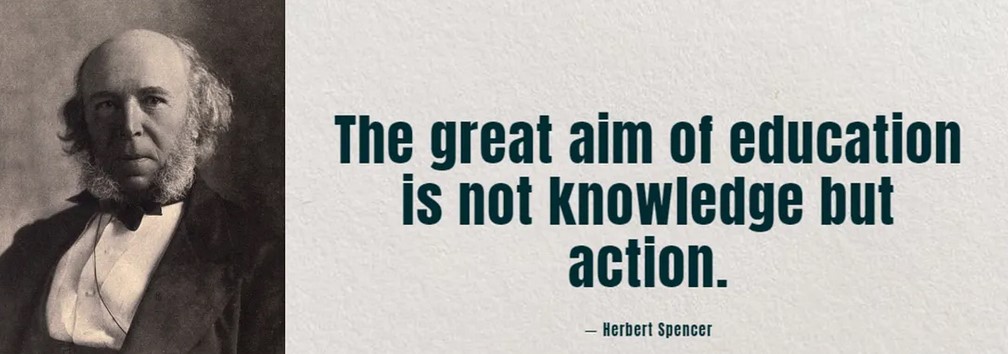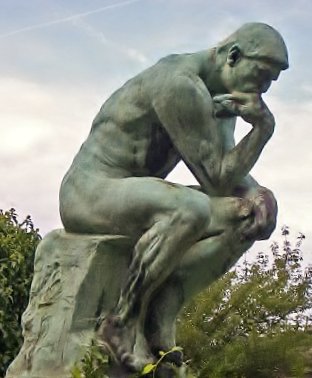Why Praxis Is The Key To Living A Successful And Stress Free Life

Praxis - Informed Action
Praxis is the process of taking "informed action". The word "Praxis" is derived partly from ancient Greek and partly from Latin and is modernised as "practice".
To take informed action you need to be prepared with information, knowledge, education and insight.
Informed action is objective action that:
- Seeks to eliminate all hijacking of your brain from inherent cognitive bias and all other known cognitive distortions.
- Disregards social media based popular ideology.
- Avoids partial truth and always tries to understand the whole picture based on all known data.
Informed action has 3 elements:
- Knowledge based on source data and critical thinking
- Practical Application of that knowledge
- Experienced Based Improvement of that action
Praxis as a Process
Praxis emphasizes the practical application of knowledge and the importance of critical thinking and engagement with the world.
It highlights the interconnectedness of theory and practice, where reflection on action informs future action and theory.
It involves a cycle of understanding -> action -> reflection on that action -> applying that reflection to further understanding and action.
Why Is Praxis Important?
Many of the things that happen in your life are random and beyond your control.
But, the one thing you can control is how you choose to respond to these events - and it is a choice.
- Between stimulus and response there is a space.
- In that space is your power to choose your response.
- In your response lies your growth and your freedom.
In short, the stronger your response - the better the outcome.
The long term compounding impact of your choices can have a major effect on your health, wealth and happiness.
The strength and quality of your response is determined by the skills and the experience you bring to it, and that is based on knowing:
- How to think effectively
- How to stop thinking
Recommended Resource:
The Law Of Response and Outcome - A New Approach To A New Life
How and Where To Apply Praxis To Zen Tools Material

Life is short, time is precious, and I have reached an age and stage in life where I have little interest in shooting the breeze, sounding off, and offering opinion pieces for readers' entertainment.
My purpose with this website, and very specifically in this article, is to attempt to offer insights, practical tips and resources that have benefited me and that readers may find helpful.
The human mind is a complex system of many inter-connected parts. It is difficult to achieve lasting change without having a basic understanding of these parts, and knowing where and how to apply the skill sets that will deliver that lasting change.
Unlike so much of what you will read about personal change and development, in my experience:
- There is not one cure-all solution
- There are not many quick fixes
- Lasting change seldom happens quickly
Are You The One In A Thousand?
If you are the one in a thousand of readers of this article who is serious about making the necessary changes to achieve a successful and stress-free life, I am setting out below a three stage approach to reading and applying material and resources from this site that will help you to achieve this objective.
There are approximately 350 articles on this site comprising about one million words all related to our two key themes: how to think effectively, and how to stop thinking.
So to assist you in the process, here is my quick guide to helping you navigate this material to focus on and apply praxis to Zen Tools material. This is a self-study exercise and it will take time for you to work through the material.
How To Get The Best Out Of This Material
There 3 stages and within each stage there 3 major subjects, as follows:
[1] Foundation To Praxis
- How to stop thinking
- How to think
- Avoiding hi-jacks
[2] Reinforcement Of Praxis
- Atomic habits
- Delayed gratification
- Metagame strategies
[3] Advanced Praxis
- Nassim Taleb
- Complex systems
- Ergodicity
Each stage builds on the previous stage. I provide a brief commentary introducing each stage and then I highlight key points for focus in each major subject.
There is a huge amount of material here all with extensive links cross referencing material on this site and links to third party material.
Each major subject provides extensive indepth resources and includes a wealth of practical and actionable ideas.
Despite the rich content, everything on this site is presented in an easy to read format and key points of information and actions points are clearly highlighted.
You are not going to be able to skim through this material and get anything out of it.
I recommend that you set aside time to work through each stage and the key subjects and note down no more than 3 points for action on each subject.
Then, when you have covered all of the major subjects, I suggest that you choose and run with those action points that resonate most deeply with you.
Put them into practice, reflect on your experience to find out how you can deepen your knowledge and increase your skill sets.
Feel free to contact me with any questions or observations.
[1] Foundation To Praxis
Can you stop thinking?
Can you just sit still and not think for even 30 seconds?
Can you be consciously aware of your thoughts and emotions as they arise?
The word mindfulness has been over-used and abused so often that is it just too easy to dismiss it.
But the daily practice of mindfulness will give you a greater degree of control over your thoughts and emotions than you have now, and this is an excellent foundation for taking informed action.
There are a number of basic thinking skills that you need to understand and know how to apply, especially "First Principles Thinking" and" Second Order Thinking" and a good working knowledge of a range of "Mental Models".
Lastly, and of equal importance, it is essential that you are aware of and understand how to avoid your brain getting hi-jacked by a wide range of cognitive biases and distortions - many of which are hardwired into your head.
[2] Reinforcement Of Praxis
Having got the foundation to praxis in place you now need to take on board three powerful ideas that will reinforce your informed action.
These are simple ideas that are hard to put into practice because they go against the grain of how your brain is hardwired to perform.
First off is the importance of habits or "atomic habits" as James Clear refers to them because of the huge compounding benefits that are derived from them.
Next is "delayed gratification" which sounds very worthwhile but cuts right across your strongly hardwired desires for instant gratification. Nevertheless, delayed gratification is a major reinforcing factor to your informed action. An integral component of all this is "the long game" and we also look closely at how to handle this lonely, unsignposted, "road less travelled".
The third piece in the reinforcement process is understanding and knowing how to apply the "game beyond the game" aka "the metagame" which is all about making moves that others find hard to imitate or counter. We build on this with "the enhanced metagame" and how to apply "the metagame to second order thinking in a complex environment".
The consistent and persistent application of these 3 simple powerful ideas will take your informed action to the next level.
[3] Advanced Praxis
Now we reach the advanced level of praxis and this is about 3 subjects that are inter-related.
To set the scene you need to be aware of the work of Nassim Nicholas Taleb, a Lebanese-American essayist, mathematical statistician, former option trader, risk analyst, and aphorist who is written extensively about chance, uncertainty and high risk consequences. He describes his work as:
"An investigation of opacity, luck, uncertainty, probability, human error, risk, and decision making when we don’t understand the world."
If I had to distill it down to one sentence it would be this:
Focus on the consequences and not on the probability.
Then we take a deep dive into the context of this world of chance, luck and opacity which is all about complex systems thinking. This is science based reappraisal of the standard classical Newtonian view of life.
This has major ramifications as to how we see and interact with the world. Understanding complex systems thinking and knowing how to think in this way involves moving away from control to influence.
It shows you how cause and effect does not work in the way that you thought it did, and introduces alien concepts such as non-linear interactions, emergent behaviours and distributed control.
Understanding complex systems [and knowing how to work with them] is an important thinking skill.
Traditional thinking is not enough, dealing with complexity requires a more intuitive and collaborative approach.
Living within a complex system means navigating a world where multiple interdependent factors interact in often unpredictable ways.
The most important factor to bear in mind is that as one of very many small moving parts within a complex system, how you are is as important as what you do.
Then the third and final subject is ergodicity - which is an ugly mathematical term that contains practical wisdom that affects us all.
In a nutshell, there are very few areas of life where there is the consistency of outcome that we all crave whilst there is an absolute certainty of extreme variations in outcomes. Extreme variations are scenarios which are discounted and ignored [by governments and "experts"] as irrational because their likelihood is rare and unpredictable.
So understanding the concepts of ergodic and non-ergodic outcomes is important if you want to achieve a consistency of outcomes in an environment which is full of the certainty of extreme variations.
Put very simply - this is about how to increase your chances of survival and success in a very uncertain world.
To wrap up this third stage of informed action I will leave you with this encouraging thought:
Life is non-linear, which makes the rewards of continued effort disproportionately big, but because progress on the extra mile isn’t clearly visible, most people give up too early.
BONUS Praxis
To conclude this piece I have included a bonus section featuring 3 subjects that are interconnected with several of the themes we have already considered.
The first subject is counter-intuitive and sets out why we should embrace anomalies. We should think of these as glitches in the matrix.
Unfortunately the human brain naturally gravitates toward patterns and confirmation because it is wired to seek coherence and consistency but this can work against us.
As Warren Buffett succinctly put it:
"What the human being is best at is interpreting all new information so that their prior conclusions remain intact".
The second subject highlights the importance of measurement and its relationship with value.
The metrics we choose to focus on can significantly shape our outcomes, sometimes in ways we don't intend. Metrics provide feedback and serve as a compass, guiding decisions and behaviours within an organization or a personal endeavour.
They translate abstract goals into tangible targets. But deeper than that the emotional logic for measuring things is that it gives us a feeling of being in control and reduces the feeling of uncertainty [or we like to think it does].
If you do not understand, or can not see, the things that are creating the value you will struggle to measure them.
Ignore optics and focus on outcomes.
The challenge is to make sure that you are measuring the right things and with the right metrics. When you have identified the metric that truly matters then optimize for it
relentlessly.
The last subject is group culture.
We like to see ourselves as free agents making our own choices and living authentically but the reality is that our environment has many layers and we are unaware that we are more enmeshed and ensnared than we realise.
Group culture is the single biggest determinant of how an individual will behave within any group environment. It will over-ride education, intelligence and common sense.

Return from "Praxis" to:
Inner Mastery For Outer Impact or Walking The Talk
Next Article:
Dealing With Distraction - How To Live With Your "Attention Autopilot"
LATEST ARTICLES
Does Prayer Work? The Psychology of Prayer, Meditation and Outcomes
 Reality Is A Complex System Of Countless Interactions - Including Yours. So does prayer work? The problem is that the question itself is usually framed in a way that guarantees confusion. We tend to a…
Reality Is A Complex System Of Countless Interactions - Including Yours. So does prayer work? The problem is that the question itself is usually framed in a way that guarantees confusion. We tend to a…Living in Survival Mode Without Surrendering Mental Authority
Living in Survival Mode Without Surrendering Mental Authority
 Clear Thinking When You’re Just Trying to Stay Afloat. Many people today are overwhelmed because they are living in survival mode - not temporarily, but as a persistent condition of life. For many, th…
Clear Thinking When You’re Just Trying to Stay Afloat. Many people today are overwhelmed because they are living in survival mode - not temporarily, but as a persistent condition of life. For many, th…Manifestation Without Magic: A Practical Model
 Manifestation without magic is not a softer or more intellectual version of popular manifestation culture. It is a different model altogether. Popular manifestation teachings tend to frame reality as…
Manifestation without magic is not a softer or more intellectual version of popular manifestation culture. It is a different model altogether. Popular manifestation teachings tend to frame reality as…Staying Committed When You Can't See Progress - The Psychology of Grit
 Uncertainty Is Not The Absence Of Progress, Only The Absence Of Reassurance. One of the most destabilising experiences in modern life is not failure, but uncertainty and staying committed when you can…
Uncertainty Is Not The Absence Of Progress, Only The Absence Of Reassurance. One of the most destabilising experiences in modern life is not failure, but uncertainty and staying committed when you can…The Battle For Your Mind - How To Win Inner Freedom In A Digital Age Of Distraction
 From External Events to Inner Events. We often think of “events” as things that happen out there: the traffic jam, the rude comment, the delayed email reply. But what truly shapes our experience is wh…
From External Events to Inner Events. We often think of “events” as things that happen out there: the traffic jam, the rude comment, the delayed email reply. But what truly shapes our experience is wh…How to See Your Thoughts Without Becoming the Story
 A Practical Guide to Thought-Awareness. You can spend your life inside the stories of your mind without ever learning how to see your thoughts clearly and objectively. Most of the stuff we tell oursel…
A Practical Guide to Thought-Awareness. You can spend your life inside the stories of your mind without ever learning how to see your thoughts clearly and objectively. Most of the stuff we tell oursel…The Collison Decision Matrix - A Simple Framework for Better Choices
 The Collison Decision Matrix Is A Practical Everyday Thinking Tool. Most of us spend a surprising amount of time worrying about decisions. From small ones such as what to wear, what to eat, what to te…
The Collison Decision Matrix Is A Practical Everyday Thinking Tool. Most of us spend a surprising amount of time worrying about decisions. From small ones such as what to wear, what to eat, what to te…The Power Of Asking The Right Question
 The Power Of Asking The Right Question Lies In The Quest For Insight. To experience the power of asking the right question you must develop the practice of asking questions. The best way to improve th…
The Power Of Asking The Right Question Lies In The Quest For Insight. To experience the power of asking the right question you must develop the practice of asking questions. The best way to improve th…Site Pathways
 Here is a site pathway to help new readers of Zen-Tools navigate the material on this site. Each pathway is based around one of the many key themes covered on this site and contain a 150 word introduc…
Here is a site pathway to help new readers of Zen-Tools navigate the material on this site. Each pathway is based around one of the many key themes covered on this site and contain a 150 word introduc…How To Live With Contradiction - Beyond Thought Let Stillness Speak
 A major impact on so many peoples' lives is the situational contradiction of unfilled realistic expectations. So where does all this leave us? Well here we are, with mental equipment that is more lim…
A major impact on so many peoples' lives is the situational contradiction of unfilled realistic expectations. So where does all this leave us? Well here we are, with mental equipment that is more lim…How To Trust The Process Of Mindfulness - Right Now
 In mindfulness, the process isn’t some distant goal — it's what is happening right now. When we talk about how to trust the process of mindfulness the credibility of the process is heavily dependent…
In mindfulness, the process isn’t some distant goal — it's what is happening right now. When we talk about how to trust the process of mindfulness the credibility of the process is heavily dependent…



